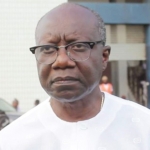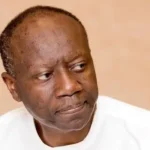
Social Enterprise Ghana is demanding the immediate passage of key policies and bills needed to strengthen Ghana’s fast-growing social innovation sector.
Speaking at the 2025 Ghana Social Enterprise Forum at the British Council in Accra, Executive Director Edwin Zu-Cudjoe said the time for action is now.
He opened the forum by celebrating the work of social entrepreneurs, women entrepreneurs, entrepreneurs with disabilities, refugee entrepreneurs, and young innovators across the country.
“Good morning and welcome to the 6th edition of Ghana Social Enterprise Forum, an event to celebrate the work and impact of social entrepreneurs,” he said.
He noted that the community gathered to advance a common mission of innovation, impact and national development.
Zu-Cudjoe explained that this year’s theme, “Smart Impact: Leveraging Technology to Accelerate Social Innovation,” reflects the urgency of using advanced technology to break long-standing barriers.
“For social entrepreneurs to make an impact and promote shared prosperity, we need to take advantage of the various technologies, including Artificial Intelligence, Blockchain, Cybersecurity, Internet of Things, Quantum Physics, and many more,” he said.
He stressed that these tools were crucial to “advance social innovation and address our teething challenges of poverty, lack, and food insecurity.”
He acknowledged government efforts through initiatives such as the One Million Coders Programme, Adwumawura, the National Apprenticeship Programme, the 24-Hour Economy, Nkoko Nkitinkiti and the Big Push.
However, he said the sector needs far more inclusive policies tailored to vulnerable groups.
“We urge the government to develop more inclusive initiatives and policies that support the many social entrepreneurs, persons with disabilities, young and female entrepreneurs, and persons who are displaced,” he said.
Zu-Cudjoe presented a clear set of policy demands.
“We recommend the Ghana Social Enterprise Policy, the Ghana Social Enterprise Fund, the Start Up and Innovation Bill, Start Up Equipment Financing Policy, Ghana Social Procurement Bill, and the Inclusive Agribusiness Policy,” he announced.
He stressed that these reforms were essential to unlock growth in the impact sector and expand opportunity across communities.
He used the platform to thank organisations that have supported the ecosystem.
“Events and platforms like this afford us the stage to say ‘Thank You’ to partners and organisations that have supported us over the years,” he said.
He recognised WUSC Ghana, GIZ, KfW-African Union Skills Initiative for Africa, Accra Technical University, KPMG, Amahoro Coalition, the European Union, SNV 2SCALE, Star Ghana Foundation and WACSI for their continued technical and financial support.
Zu-Cudjoe outlined the key activities of the 2025 forum, including goodwill messages, keynote addresses, panels on transformational technologies, exhibitions and dealrooms.
He emphasised that the moment demanded boldness from the impact community. “As social innovators, the time for us to be at the forefront of social innovation, impact, and transformational change is now,” he said.
He highlighted the scale of problems requiring urgent solutions. Ghana, he said, needs innovators who can “take 20–100 million people out of poverty, address poor road networks, promote good health, develop social housing solutions, and provide decent, dignified, and fulfilling jobs for our young people.”
He saluted pioneers in Ghana’s digital and technology ecosystem, listing leaders whose work continues to expand inclusive access to technology.
He also praised the many social enterprises that are making a difference every day, saying “kudos to the many social entrepreneurs making a difference in their communities” and naming organisations across agriculture, education, health, green energy and innovation.
Mr Zu-Cudjoe closed his address by urging the sector to connect and collaborate.
“Welcome again to the Ghana Social Enterprise Forum 2025. We urge you to celebrate, engage, network, and create impact,” he said.




